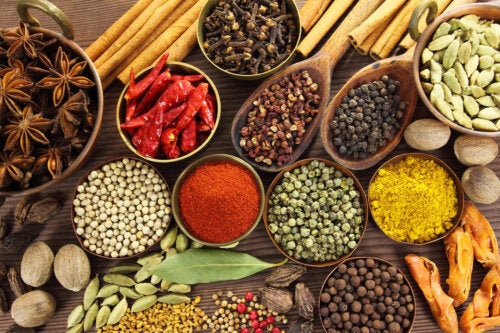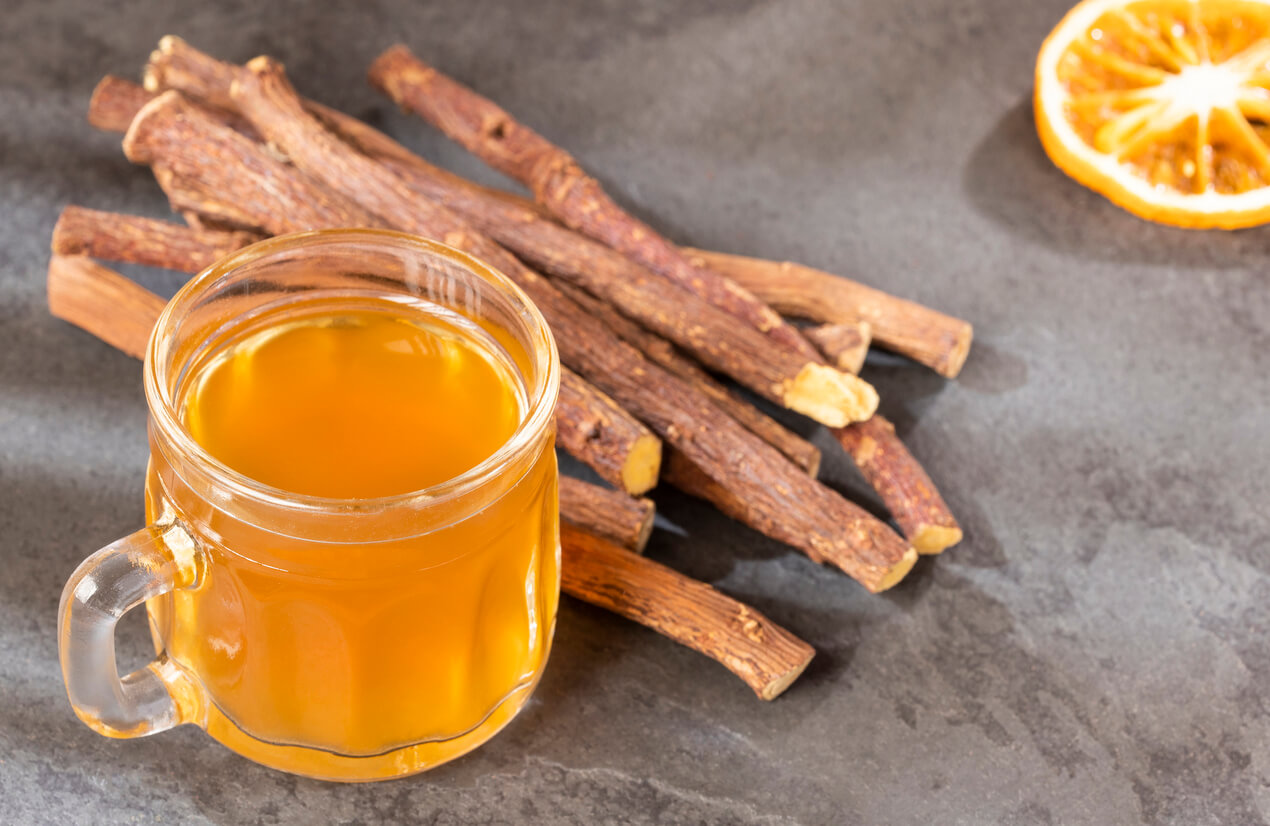Spices Prohibited During Breastfeeding
There are certain spices that are prohibited during breastfeeding, including fennel, star anise, sage, licorice, and parsley.

Science assures us that much of what we eat passes directly to the baby through breast milk. That’s why, while breastfeeding, we must pay attention to our diet. And, although there’s not sufficient evidence, sage, for example, has been observed to contain a substance that reduces milk production. That’s why it’s crucial for us to know which spices are prohibited during breastfeeding.
In this regard, there are conflicting opinions on the use of spices during breastfeeding. A group of researchers is inclined to take some precautions when using ingredients with strong aromas and flavors. This is because traces of these substances have been found in milk. Therefore, for your peace of mind, in this article, we’ll clarify the spices that we should exclude from the diet, as explained by science.
Read carefully so that you can give your baby comfort and well-being during the breastfeeding period!
What are spices?
Spices are aromatic and flavoring substances derived from plants. These can be seeds, fruits, bark, roots, shoots, or flowers. They’re mainly used to enhance the aroma, flavor, and color of foods. As part of the diet, some can impact milk, the way it is produced, and sensory characteristics.
Especially beware of the use of galactagogues. These are herbs, spices, and medications that are used to boost milk production, but aren’t always safe.
Which are the prohibited spices during breastfeeding?
For a little over 10 years, some scientists have been pointing out that spices mainly affect the taste of milk. Although we know that they also have an impact on its production. Let’s study which spices to take precautions with during this period of maternity.

1.- Fennel
Fennel seeds Foeniculum vulgare contain a volatile oil composed of anethole, which is a phytoestrogen. It’s commonly used to treat digestive disorders, urinary tract problems, and breast milk production.
According to the NIH Drug and Lactation Database, in 2023, fennel is a purported galactogogue included in some proprietary mixtures to increase milk supply. However, the evidence is weak as to the types of studies and methods used to measure this effect as a single ingredient.
2.- Star anise
Star anise is a spice named for its star shape. It comes from the East and is very popular in naturopathic medicine. It contains anethole, which also acts as a phytoestrogen.
Although there are no studies showing the toxicity of star anise – Illiciumverum – during breastfeeding, there’s a concern about this spice, as there’s a risk of confusion with a particular species, Chinese star anise (Illicium anisatum). The latter can be toxic, as it contains a substance called anisatin, which is extremely dangerous for mother and baby.
According to the above, it’s best to avoid anise or make sure that it’s conventional star anise. The latest revision of the National Library of Medicine, in 2023, declares conventional star anise as safe for health. However, it’s best to take precaution and avoid it during breastfeeding.
Read also: What Should Moms Eat While Breastfeeding?
3.- Sage
A study published in the Breastfeeding Medicine journal points out that salvia contains a substance called diterpenic acid. It has properties to reduce milk production. So, if you want to have a healthy lactation, you should consume minimal amounts of sage or even avoid it altogether.

4.- Licorice
Licorice is an herbaceous plant that’s mainly used in baking thanks to the sweetness it can bring to food. However, a report shown by National Library of Medicine in 2021 states that it contains glycyrrhizic acid, which reduces serum prolactin. Therefore, it could affect milk production during the early stages of lactation and is listed among the prohibited spices during breastfeeding.
5.- Parsley
Parsley is an herbaceous plant that has been widely used in the culinary world. However, it’s known to contain a substance called apiol, which is capable of reducing the production of breast milk.
The same study from the Breastfeeding Medicine journal also comments on the anti-galactogogue effect of parsley. Therefore, caution in its consumption is instructed, although more studies are needed.
Do you already know which spices you’ll eliminate from your diet?
It’s still unknown which other spices should be avoided during breastfeeding, so you should always consult with a specialist about whether or not to include them in your diet. So far, fennel, star anise, sage, licorice, and parsley should be excluded from any presentation. To replace them, you can opt for other alternatives with similar sensory properties that allow you to maintain breastfeeding and ensures the good development of the baby.

